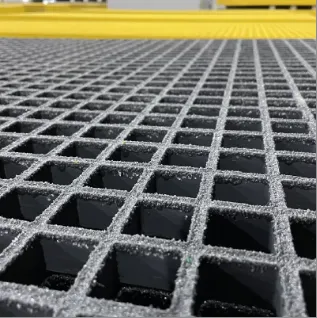loading...
- No. 9, Xingyuan South Street, Dongwaihuan Road, Zaoqiang County, Hengshui, Hebei, China
- admin@zjcomposites.com
- +86 15097380338
- Welcome to visit our website!
industrial water treatment
Industrial Water Treatment Ensuring Sustainable Practices in a Modern Economy
In today's industrialized world, the demand for clean and safe water is more crucial than ever. Industries, ranging from manufacturing and mining to agriculture and energy, rely heavily on water for their operations. However, this reliance poses significant risks to our water resources, leading to pollution and depletion. Consequently, effective industrial water treatment has become indispensable to ensure sustainability and minimize environmental impact.
Water treatment in an industrial context encompasses a series of processes that convert contaminated water into a clean and reusable resource. This process is vital not only for complying with environmental regulations but also for enhancing operational efficiency and reducing costs. Industries often face stringent regulations regarding the discharge of wastewater, and investing in water treatment systems enables them to meet these legal requirements while promoting corporate social responsibility.
Understanding the Types of Industrial Water Treatment
Industrial water treatment systems can be categorized primarily into three types pre-treatment, treatment, and post-treatment processes.
1. Pre-Treatment This initial stage involves the removal of large solids and debris from the water to protect equipment and enhance the efficiency of subsequent treatment processes. Techniques such as screening, sedimentation, and flotation are commonly employed. Pre-treatment is crucial as it mitigates the risk of damage to pipes and pumps and ensures that the main treatment processes, such as filtration and chemical treatment, operate more effectively.
2. Treatment The core stage of water treatment involves the removal of contaminants, including dissolved solids, organic materials, and pathogens. Various technologies can be utilized, depending on the contaminant profile. Common methods include - Reverse Osmosis (RO) This membrane process is effective in removing salts and other small contaminants from water. RO is particularly useful in industries that require high-purity water, like pharmaceuticals and electronics manufacturing. - Ultraviolet (UV) Disinfection UV light is employed to inactivate microorganisms without the use of harmful chemicals. This method is increasingly popular due to its effectiveness and low environmental impact. - Chemical Treatment The addition of chemicals can precipitate contaminants, making them easier to filter out. Coagulation and flocculation are common chemical processes used to gather and remove particulates from water.
3. Post-Treatment After water has been treated, additional processes may be required to enhance its quality or prepare it for reuse. Techniques such as polishing filters or additional disinfection ensure that the treated water meets required quality standards. This stage is critical for industries that recycle water, as the quality must be high enough to be reused in production processes.
industrial water treatment

The Importance of Recycling and Reusing Water
One of the most significant benefits of industrial water treatment is the ability to recycle and reuse water. Industries can significantly reduce their freshwater consumption and environmental footprint by treating and reusing water within their processes. This practice not only helps conserve precious water resources but also leads to substantial cost savings over time. For instance, companies in the textile industry have reported up to 70% reductions in freshwater usage by implementing effective water treatment and recycling initiatives.
Moreover, as global water scarcity continues to escalate due to climate change, population growth, and urbanization, the importance of industrial water treatment becomes even more pronounced. Businesses that adopt sustainable water management practices not only comply with legal requirements but also enhance their reputations and competitive edges in the marketplace.
Challenges and Future Directions
Despite the clear benefits of industrial water treatment, numerous challenges persist. The initial capital investment for advanced water treatment technologies can be substantial, and smaller businesses may struggle to afford these systems. Furthermore, ongoing operational costs, the necessity for skilled personnel, and technological maintenance can pose significant hurdles.
To address these challenges, industries must focus on innovation and investment in research to develop more cost-effective and efficient water treatment solutions. Additionally, collaboration between governments, industries, and research institutions can facilitate the sharing of knowledge and resources, driving advancements in technology and policies promoting sustainable water practices.
Conclusion
Industrial water treatment is a vital component of sustainable industrial operations. By ensuring that water is used efficiently and responsibly, industries can protect vital water resources and contribute positively to environmental conservation. As challenges related to water scarcity and pollution continue to evolve, the need for effective water treatment solutions will only grow. The future of industry depend on how well we manage our water resources today.
-
The Rise of FRP Profiles: Strong, Lightweight, and Built to LastNewsJul.14,2025
-
SMC Panel Tanks: A Modern Water Storage Solution for All EnvironmentsNewsJul.14,2025
-
GRP Grating: A Modern Solution for Safe and Durable Access SystemsNewsJul.14,2025
-
Galvanized Steel Water Tanks: Durable, Reliable, and Ready for UseNewsJul.14,2025
-
FRP Mini Mesh Grating: The Safer, Smarter Flooring SolutionNewsJul.14,2025
-
Exploring FRP Vessels: Durable Solutions for Modern Fluid HandlingNewsJul.14,2025
-
GRP Structures: The Future of Lightweight, High-Performance EngineeringNewsJun.20,2025
